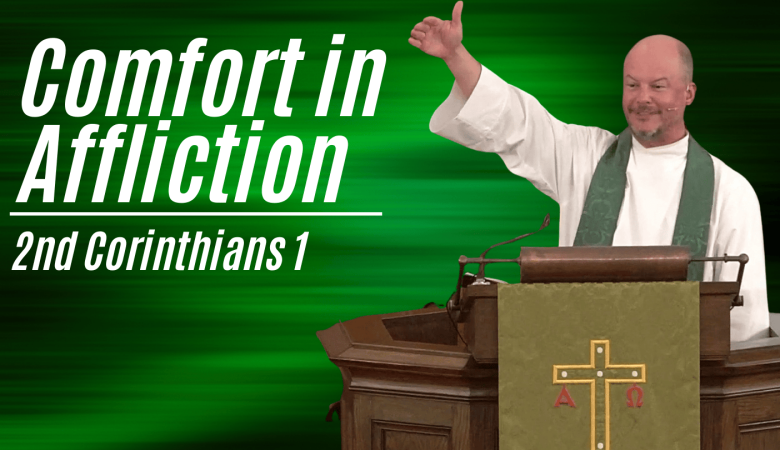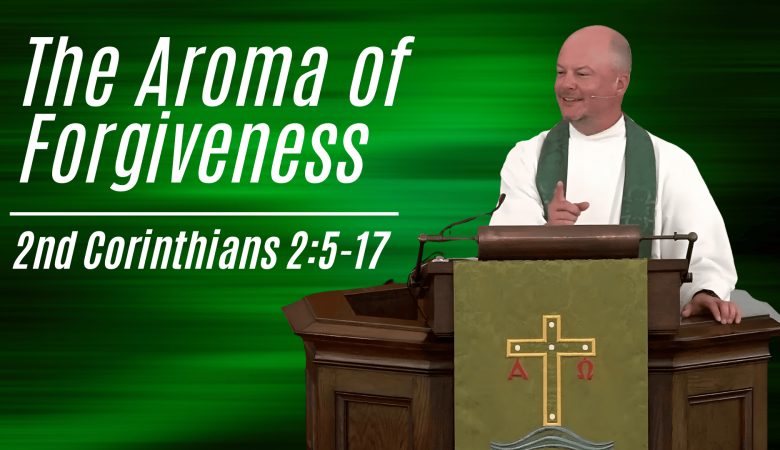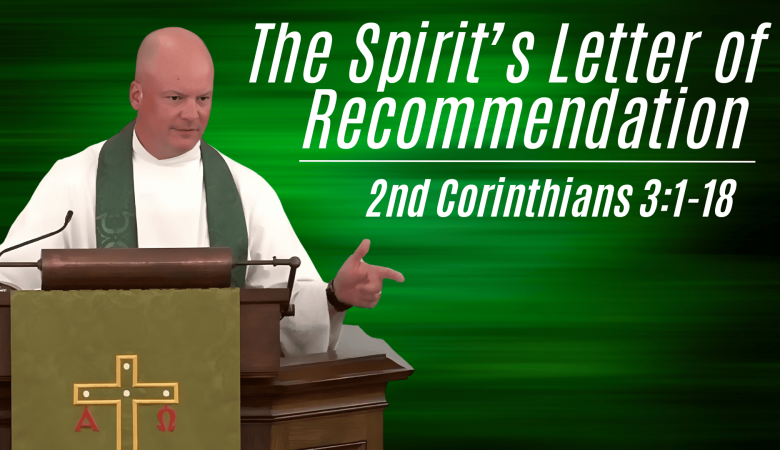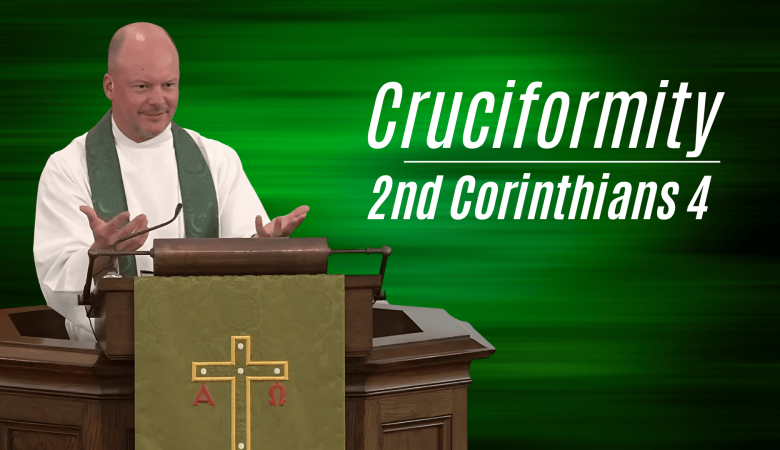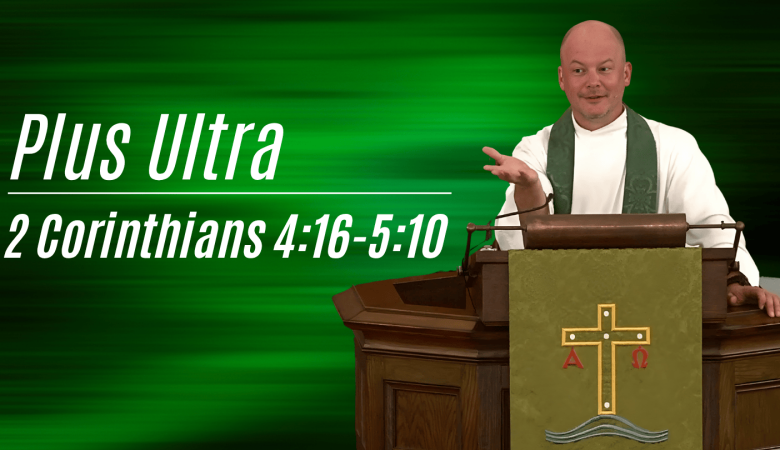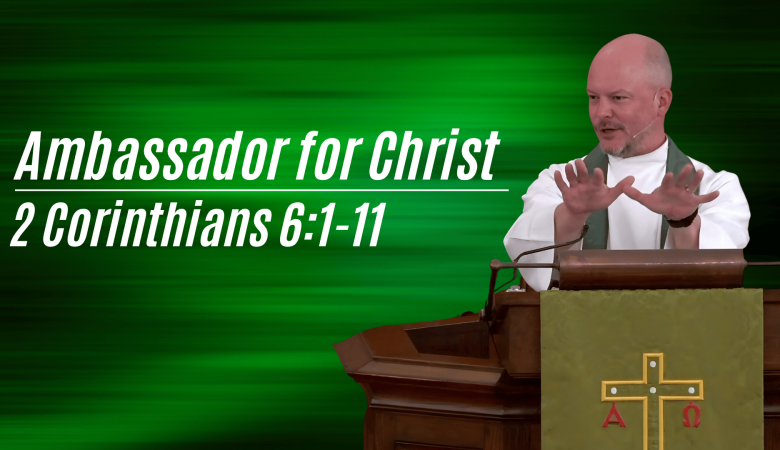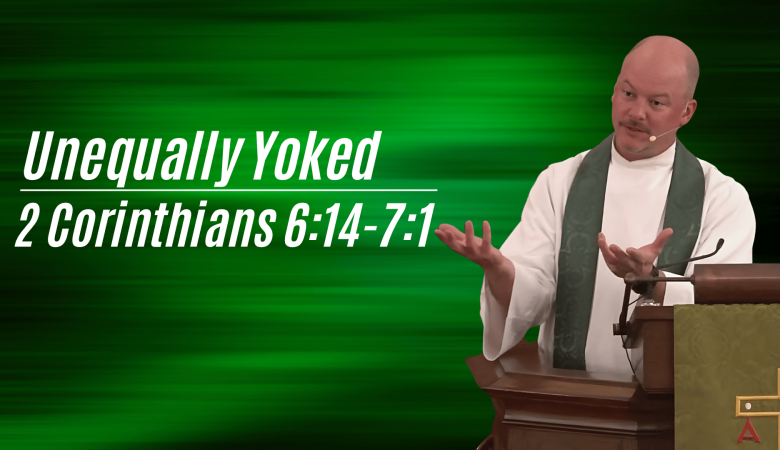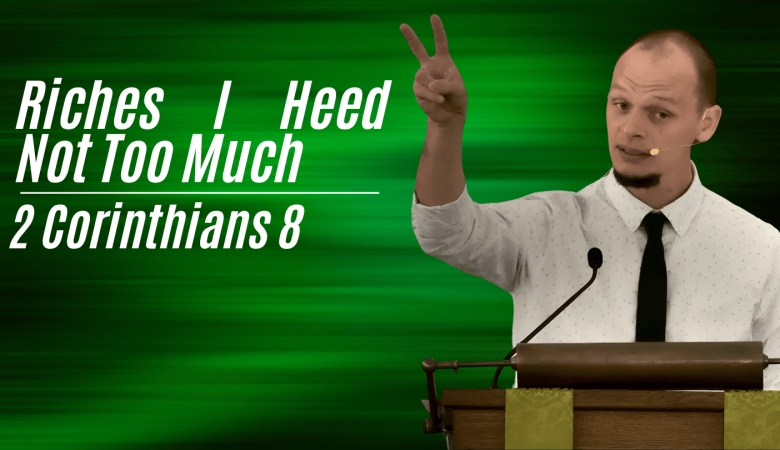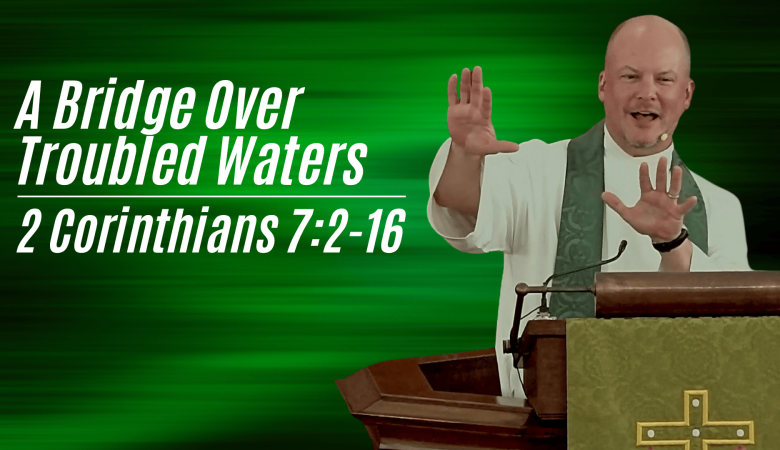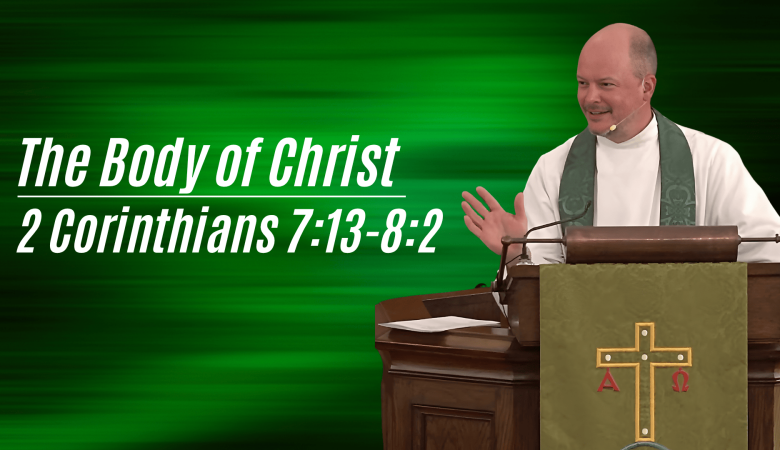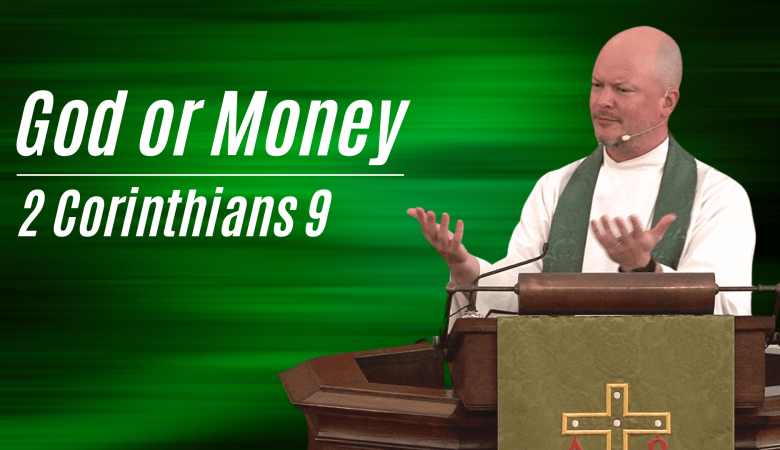Series: Power in Weakness
Reconciled Ministers of Reconciliation
October 05, 2025 | Peter Rowan
Summary
Reconciliation transforms lives completely. Throughout history, certain events have radically redefined people, changing them from one way of being into something entirely new. Marriage reshapes two individuals into one union. The birth of a child instantly reorders priorities, time, and resources. Similarly, God's reconciling work in Christ creates new people.
Paul the Apostle experienced this radical change. First mentioned in Acts 7 collecting garments while Stephen was stoned to death, Paul ravaged the early church, dragging believers to prison. He despised the idea that God would offer lavish forgiveness through Christ's death. Breathing threats and murder against Jesus's followers, Paul traveled to Damascus to arrest them. On that road, Jesus met him, blinded him, and utterly changed him. The persecutor became the reconciler.
Paul's ministry flowed from his reconciliation. He persuaded those he once hated—Gentiles he had considered outside God's grace. He traveled from Philippi to Ephesus to Athens to Corinth, preaching forgiveness to people he formerly despised. Even when the Corinthian church grew distant, preferring eloquent teachers with impressive credentials, Paul pursued reconciliation with them. Moving toward those with swords drawn contradicts human nature, yet Paul embodied this ministry of reconciliation.
Transcript
Lord, thank you for the wonder that is this passage, but even more what it speaks of. God, you in Christ were reconciling world to yourself, not counting our sins against us, that you're the great lover who pursues the runaway. Our estrangement that our sin has created distance. Distance is no obstacle to your love. Great reconciler God, I pray that our hearts would be warm towards yours this morning. God bless now the preaching of your word. Bless the words of my mouth and meditations of all of our hearts. May they be pleasing in your sight, O Lord, our rock and our redeemer. Amen.
All right. There are some events in our lives that radically change us, that define who we are and they define what we are about. They make such a shift that in some ways we are new people. Of course, this doesn't happen a lot, going from one way of being in the world into a new way of being in the world. But you can think of some of those marriage in a very real way. You come in two people, the Bible says, and you leave one. We change names and things like that. But according to the Bible, there's actually a more radical change that's taking place. Coming in singular, going out, coming in plural, going out singular. It's a redefining kind of thing.
I mentioned last week the young man who has mentors and parents and teachers encouraging him to wake up a little earlier to apply for certain jobs, and all of a sudden, so and so comes into his life and he has all of the energy he ever needed to get all that stuff done. Think of having a child, your time and your money and all that seemed to be yours. Do with as you pleased. Moments later, a birth later, no more.
In 1492, that famous year that Columbus sailed the ocean blue, there were two prominent Irish families, the Ormonds and the Kildares. They were both earls of rulers, and they were in the middle of this feud. Fitzgerald had besieged. Fitzgerald was the Earl of Kildare, and he had besieged Butler, the Earl of Ormond. And Butler actually took refuge in that famous church in Dublin, St Patrick's Cathedral, which is the main cathedral in the Church of Ireland. And what they did is they actually bolted themselves in for fear of the Earl of Kildare.
Well, as this siege went on, the Earl of Kildare came to this conclusion that this is a foolish feud. Two families worshiping the same God, worshiping in the same church, in St. Patrick's itself, and they're literally trying to kill each other. So he called out, there's actually an inscription there at St. Patrick's to this day undertook on his honor that he should receive no villainy. It's spelt V I L L A N I E. It's old. So he's saying, I'm not going to do this on my honor. I'm not going to come after you. I'm not going to go after villainy.
Of course, Ormond, what happens when somebody's out to get you and they say, oh, I'm not going to go, I'm not going to harm you. He's like, yeah, right. I don't think so. So he's not so sure and he's afraid of this treachery and so he doesn't respond. He's inside St Patrick's and Kildare, the story goes, he seizes his spear and he actually cuts in the door, a window inside this door into the Great Cathedral of St Patrick's well I should say it's the chapter house. So it wasn't like the main door there. And he thrusts his hand through, thrusts his hand through this hole that he cuts open and it's grasped on the other side by the Earl of Ormond. It's this great sort of picture of this reconciliation, this coming to realize how foolish sin is. It's actually where we get the phrase chancing one's arm. This gesture of will it be received. At that moment though, in that act of moving out towards these families were entirely changed. Just in that moment, that act of reconciliation, lives were changed.
Let me tell you of another story that radically changed somebody. One of the great New Testament scholars of the mid 20th century was a scholar named R. V. G. Tasker. Tasker. He said, this man's greatest need is to know man's greatest need. Man's greatest need is to know man's greatest need. Tasker was a professor of New Testament at the University of London and he was on the committee that translated one of the great. He was over the New Testament part of the 20th century, the new English Bible. He was one of the great recognized authorities in the mid century in England of the New Testament. He wrote one of the more well known commentaries on the Gospel of John.
Anyway, he would later come to say that while even while he was doing this he had no regard for Christ. Very sort of interested in Christ in a worldly way, but little regard for Christ as his savior. He was actually an Anglican minister and he went on to talk to his friend about how his sermons themselves had no real regard for Christ as savior. He didn't believe his greatest need was to know his greatest need. Early on in his ministry, he didn't believe himself to be in need of a new creation, a new heart, the forgiveness of sins, all that stuff. He didn't believe he was alienated from God. How passe all that was. He didn't believe he was doomed apart from Christ's reconciling work. He didn't believe he was estranged from God because of his sin.
And then one night, he actually went sort of out of interest to the Christian Union, which was kind of like intervarsity or RUF there at the University of London. Because there was a famous preacher that was going to give the message that night. It was the preacher Martyn Lloyd Jones, some of you know that name. He was a great preacher in London in the. Really a while, in the mid century. Anyway, he went to hear Martyn Lloyd Jones and he said that his life that night was quote, revolutionized by the address. Revolutionized. He was changed, literally, as though it was sort of an overnight thing. That moment, hearing that message changed his life. He came to see himself as a sinner, as distant from God in need of grace as someone actually ruined by sin, made new and part of the new creation. Said his greatest need was to know his greatest need.
And here's something interesting. Well, much of the faculty there at the University of London were his buddies and were sort of in the same camp he was in. And they ostracized him for this. So many of his academic colleagues became his critics. How could this educated man buy into such dated ideas? But it changed him overnight. It changed him. It came to define him, give new purpose to his life. He was brought near to God by grace. That night he also actually ended up losing his position there at the University of London. He was ostracized academically, proclaiming this sort of new reality of faith and sin and the cross.
Paul knew this reality, of course. Paul the apostle, he knew how foolish and oftentimes offensive and sometimes it was considered uneducated, not something to boast about. The Gospel of Jesus was. Paul knew how getting the good news of the reconciling Gospel of Christ sometimes puts you outside is. It changes us, and yet it sometimes makes people look askance at you. Paul knew that there was nothing out of date about sin or God's grace or Christ's sacrifice. And so he keeps applying it all the time in his letters. Right?
Think about Paul's story. The first time Paul is mentioned is at the end of chapter seven in the Book of Acts. Chapter seven tells us about how Stephen, who was a leader in the early church there, he's being stoned to death because it says he was full of grace and power. But the leaders there in the early church didn't want anything of it because he was preaching this reality of what God had done in Christ, the need for repentance, a new life and faith. They claimed that he was blaspheming because he was saying, jesus is Lord. He was grabbed, you might know this story, and brought out of the city. And he was there stoned. And there is a religious leader standing there collecting the garments of those who are stoning Stephen. And it says there that that was Paul. That's the first time he is mentioned. He's a chief, he's a leader. He's a leader against the way of Jesus, seeking their harm.
The next chapter, actually right away, almost begins again telling us the story of Paul. There it says he approved of his. That Stephen's execution, that's the first, just the beginning of the next chapter. And then it mentions that he was ravaging the church and entering house after house. He dragged off men and women and committed them to prison. You know that story. Maybe you also know that, though that is how Paul's life was defined in that moment, how he could harm the church of Christ. How much he disdained this idea that God himself would come down and die on a cross and that he would offer this lavish forgiveness to sinners. How much he disdained that. And yet it all changed.
Acts 9, the next chapter, the very beginning of Acts 9, it tells us that he was breathing threats and murder against the disciples of the Lord. I imagine just somebody that's so angry that, you know, that vein starts to bulge. He can't stand this idea of Christ and his followers. And so he asks the leaders there if he can go to Damascus and find those who devoted themselves to the way of Jesus and bind them and bring them back to Jerusalem and put them on trial and have the same sentence that Stephen got. And they're on the road. They're on the road. In a moment, Jesus meets him and his life is utterly changed. Walking one way, and all of a sudden he is a new man.
Jesus blinds him. He actually says, why are you persecuting me? There's such a union between Christ and his church there in that passage. He says, why are you persecuting me? When he persecutes the church, Jesus blinds him. He tells him to go to the very people that he hates to receive his sight. But in that moment, he comes to see his sin. And he has Reconciliation with God in Christ. The very. The very thing that he most hated, the very thing that he would say he's farthest from. He's brought near to. He's given peace and new life, utterly changed.
We're in this second half of 2 Corinthians, chapter 5. And some. Some believe that this is the most comprehensive statement about the work of Christ in Paul's writing. It's certainly, like I said earlier, this is one of those passages that I hope you know well, the great statement of Christ's death in Paul's writing. But Paul is saying in part that Christ's work changed him, radically changed him. And he's also saying the same thing can happen to you as the Ormonds and the Kildares. They were changed in a moment of reconciliation. And their lives and their families lives and their community life was changed. You can be too, as Tasker was changed in a moment by hearing and seeing his need for Christ, utterly changed. You can be too, as Paul went from being so estranged from God and at enmity with so many others, and yet changed, you can be too, receiving the new creation, the reconciling work of God.
Paul's ministry was different, different than the other people there among the Corinthians. We're going to talk about this a little bit, he says, because I am different, he's a different being, new creation, and therefore the ministry is different. Paul, we can say this, okay? Paul was a reconciler, because he had been reconciled first. He was Paul the reconciler.
If you open up your Bibles with me to 2 Corinthians, chapter 5, verse 11, it starts this way. Therefore, knowing the fear of the Lord, we persuade others. We persuade others. Okay, Paul was this chief Pharisee, right? He was a Jewish religious leader. He had been taught by Gamaliel. He was one of the great teachers of his day. So he had the highest credentials. If there was anyone, he gets into this later. If there's anyone who could take pride in his Jewishness and in his being so learned, being part of the very people of God, take pride and then look down on others, it was Paul. And yet what he says here is that he persuades others for the Lord, knowing the fear of the Lord, we persuade others.
Okay, two things stand out here. Who did he persuade? Well, we know all kinds of people, right? But particularly Paul is known as the Apostle to the Gentiles, which is to say Paul's ministry was centered on those who were his enemies, those who he would have at one time disdained, looked down his nose at his ministry was to those who he had formerly considered outside of the pale of God's kindness and grace. I mean, Paul spent his life after that moment of encountering Jesus, going from Philippi to Ephesus to Athens to Corinth, preaching the good news of the forgiveness of sins to very people that he once thought were outside of God's grace. So when he says persuade others, saying that he is the reconciler, Paul is acting in this ministry of reconciliation as the reconciler.
But he also says that he was doing this knowing the fear of the Lord, which in the Bible, you have to understand, fear is not just so much cowering, but fear is being in awe of. It's the grandeur of God. Paul was in awe of a God who had met him when he was breathing out hatred for that very God, Paul himself, what we should say is this fear of God. He was in awe first of the grace of God. Paul himself knew that God saves sinners because he knew that he himself had been a sinner saved by God.
Paul is a reconciler because he persuades others who he had once been at odds with, who he had once hated. So right here at the beginning, when he says he persuades others, you have to go, okay, he's talking about reconciliation, but he's also a reconciler because he desires reconciliation, specifically with the Corinthian Church. This is something we've been seeing, actually, the first four chapters. Part of the intent of this book of 2 Corinthians is that Paul is still over in Troas. Remember, he's waiting for a word from Titus, and he's wondering how they've received his former admonitions. And now there's these new teachers that have come in, and Paul is sort of estranged from this, from this church which he loves. We've been talking about this for a little while, but they've been led astray, specifically by those who were eloquent, by those who had the letters of recommendation, by those who hadn't gone through the afflictions of Christ like Paul has. And in that world, to receive all these afflictions like Paul had, and to not have the letters of recommendation, you would have not been the ones that anyone would boast of. He'd be the one that was pushed aside, so sort of estranged from the people.
And so in verse 12, he acknowledges that the church there in Corinth is inclined to boast about these other leaders and not about him. That's what's going on with the boasting stuff. There he's also acknowledging that as far as appearance goes, he's not much to boast about. Verse 13, he says that he makes himself beside himself for God, which interestingly, the message, Eugene Peterson's translation says, I acted a little crazy. But he says, not with them. And why? Because what he desires is to be reconciled with them. He knows that if he's just going crazy, he's feeling this estrangement between him and them. He goes to God and goes, ah, this is driving me nuts. But he knows if he goes to them, they're not going to receive that very well. And so he's trying to kind of win them back. What I'm trying to say here is that in this talk about boasting, in this talk about being crazy and all beside himself, he's trying to move towards them in reconciliation.
Okay, think about this. What is radical about the Ormonds and the Kildares and is that we are so disinclined to move towards others when they are moving away from us. Or we should say we're disinclined to get close to those who have their swords drawn, right? Isn't this just how we function? I mean, if somebody's kind of moving away, we're like, well, I don't know that it's worth it to move towards you if you've got your swords up. I don't know that I can move towards you. Or if you're so bent on this other teacher, I don't know, just go along with them. That's kind of our human inclination, right? It's hard to pursue. It's hard to reconcile with others when they have their walls up and when they have their swords drawn. But that's what Paul is doing right here. He is living out this ministry of reconciliation with this church that is estranged from him.
So we see Paul as a reconciler in his ministry through who he persuades, right? Others, specifically the Gentiles, who he was once at odds with. But also what we see is that he's living this ministry of reconciliation as the reconciler. And how he persuades, right here in this text, he's seeking to actually bring close those who are far off from him relationally. We also see Paul as a reconciler in his ministry because of what his ministry has concluded. So we see it in the who, right? The Gentiles who see it in the how. Even in his writing, right here, he's seeking to bring that which is far off this Corinthian church, near to him, but also in. In the What? That he has concluded by his ministry. And that's this. Christ has died for all.
Well, for we, for the love of Christ, controls us because we've concluded this, that one has died for all. Therefore all have died. And he died for all that those who live, might not know, might no longer live for themselves, but for him, who for their sake died and was raised.
So here's a question I have. How do you press into the life, into life with another when you think that other person is too far gone? You know what I mean by that? Like, if you think there's no hope of having a real relationship with this person, are you going to put any effort into that? No, you're not. Okay. How do you go to another who you're at odds with, when you really think the relationship is utterly dead? There is zero hope of that relationship. You're not going to go after that person. I think if we really come to the point where we think there is no hope in a relationship, we'll just divorce the relationship. Right? Utterly cut ties, sever all ties with that person. But Paul says here that he has this ministry of reconciliation because he's concluded. But there's nobody that's beyond the pale. There's not one relationship that you have in this life that doesn't have the possibility of being mended and made lovely. Not one.
So the love of Christ controls him. And the love of Christ shows. What does the love of Christ show? Nobody is outside the possibility of God's love utterly changing them. No one. No sin is so great that Christ cannot conquer that, that Christ's righteousness cannot cover that there's no sin that pushes you so far away from the Lord that what Christ did on the cross cannot bring you close.
Think about this. Think again about the book of Acts. So Paul might be thinking back on his life. And as he does this, he thinks about how radical God's grace is and how variant it is in terms of who he calls to himself. So you think back on Acts, and there at that first Pentecost, 3,000 people give their lives to Christ. And those were devout Jews. They were there at Pentecost because Pentecost was the day when you celebrated the law being given there on Mount Sinai, right? 50 days after God's people had been brought out from slavery in Egypt at Passover. So 50 days after Easter, there are all these devout Jews there in Jerusalem. And they're hearing this message. And they were devout. They wouldn't believe in this idea that God would take on flesh and die. On a tree. And yet 3,000 of them that day gave their life to following Jesus.
Fast forward. Acts, chapter 8. Simon from Samaria, who's known as Simon the Sorcerer. He finds out what happens when the Holy Spirit descends on somebody. And he's a sorcerer. And he's like, man, if I could get some of that power, I could also get some money. Wanting to use God like the televangelist before televangelists. And the Holy Spirit does grab on him and his life's changed, repents, receives the reconciling work of God through Christ.
Think about that same chapter. That's the next little story. Ethiopian eunuch, man who is high up in the court of Candace, the Queen of Ethiopia. Somebody with a great deal of power. And there, seemingly in. In an instant along the road, Philip shares with him about Christ and his life dramatically changed, believes and is baptized.
Think of Acts, chapter 10. Cornelius is called a Roman centurion, a leader in the Roman army. Think of Lydia, fabulously wealthy, a merchant in. In purple. She. There's almost everybody believes, right, that the early church would. Would have been largely founded by her means. Fabulously wealthy woman gives her life to Jesus. Think there also in Philippi, who else gives their life to Jesus? A jailer, y'. All. Nobody. I mean, Paul's saying, you know, we are estranged, and yet I know that Christ dies for all. There's nobody that's outside of the pale. You are never so far away from God that the work of Christ cannot bring you close ever.
And think back of his own ministry. Think how variant all these people were. What Paul's ministry had concluded was that one has died for all, therefore all have died, and he died. That those who live might no longer live for themselves, but for him who died, who for their sake, died and was raised. There's no one, no one at all, outside the possibility of the reconciling work of God, which first, you need to hear, you are not. I know sometimes we think we are so defined by the ways we've sinned, by the ways that others have sinned against us. That marks us. No, you can change. It's on offer for you. But also what you need to hear is that others can change. I mean, Paul is inviting this community into this life of reconciliation with himself and with others. And if you can remember back to first Corinthians, you know this is the divided church in the New Testament. And your brother and your sister are never so far gone that reconciliation is not on the table. Your greatest, your most heinous Sin, your rebellion against God does not mean you are outside of the scope of God's reconciling work.
Now, here's an interesting thing, is that I think for a lot of us in our day, we actually have more of an inflated view of self than a diminished view of self. Right? There's some communities that say, oh, there's no way God could save me. And in our world, for the most part, we're like, well, we're doing all right. Let me share with you a few statistics I read about a report. 90% of American business managers rate their performance as superior. 86% of employees rate themselves better than average. Among divorced couples, 90% insist the breakup was their spouse's fault. 89% can't be above average. Doesn't really work that way. We have an unrealistically high view of ourselves. But on the other hand, that means that we also have an unrealistically low view, often of our neighbor. There's no way that God could be at work in them. There's no way that we could be reconciled to them.
But here's the truth, y'. All. We don't love our neighbors as ourselves. That's the. That's the second. You know, the commandment there. There's no way that we do that. None of us remotely lives up to God's calling on our lives. We don't love God as we ought to. There's no way, not even close. We are committing transgressions against the Lord. Sins against the true God all the time. Do a couple other statistics. 86% of Americans admit to lying to their parents. 75% of lying to a friend. 73% of lying to a lover. Only 11% say that lying produce any serious level of guilt or embarrassment. 74% say they will steal if they can get away with it. Who are we kidding? We have an inflated view of self, and yet sin just pervades. And yet no one is outside of the pale of God's redeeming, reconciling grace. Not one of you and not one of your neighbor.
This, this little paragraph gives us insight into Paul's ministry of reconciliation. Like who he who he pursued, how he pursued, what he concluded in these pursuits. Right. That nobody's outside the possibility of God's grace. Which means he can't treat people like he once did. You can't treat people like you once did. You can't dismiss somebody as not having the possibility of change, as being. Having the possibility of revolutionized transformation. Can't regard what Paul Says we can't regard anybody according to the flesh anymore. That's what he's saying. We once regarded Christ according to the flesh, and he rose from the dead. The world doesn't work as we thought it did. God changes us.
Why is this? Why does Paul have this ministry of reconciliation? Okay, Paul was a reconciler because first and foremost, he is one who had been reconciled. Again, if you think with me, some of you know, some of you were probably being attentive. And when I said that Paul was first mentioned in Acts chapter seven, and then I read Paul, you were like, why is he misquoting that? Because Paul's not mentioned there, is he? Who's mentioned there in chapter seven? Paul. Yeah, Saul was mentioned there. But that's his old name, the name that he beared no more. Because why? Paul was new creation. The old, even in his name, was gone. Behold, the news come. Paul was a reconciler because he had been reconciled.
Paul could declare that if anyone is in Christ, he's a new creation, because he himself knew that he's a new creation. He's totally new. That old guy's gone. Behold, news come. He can say this. From now on, therefore, we regard no one according to the flesh. Even though we once regard Christ according to the flesh, regard him thus no longer. Therefore, if anyone is in Christ, he's a new creation, old, it's passed away. Saying, that's for me. Behold, the new has come for me. And all this is from God, who, through Christ, reconciled us to himself and gave us the ministry of reconciliation. See, he's not just saying it's out there. He's saying, it's changed me. I am new for our sake. Therefore we are ambassadors. Personalized reality.
Sorry, I think I'm confused with where I'm at now.
Brothers and sisters, here, through this second paragraph, Paul can say, it is. It is us. We. We implore you. We have been reconciled. We are ambassadors. God making. Making his appeal through us, for our sake, he made him to be sin who knew sin so that in him we might become the righteousness of God. See, there's something deeply lovely about a true reconciliation, about a true hope that says nobody is outside the pale of God's grace. But Paul is saying that first and foremost, because received this reconciliation, he who once knew sin has become the righteousness of God. Because Christ, who knew no sin, became sin. That Paul might become the righteousness of God.
If you. Here. Here's what Paul's saying. If you want to have energy, if you want to have hope beyond what is fleshly possible, that your relationships, that your lives can actually change, that the people that you once thought were so far off and beyond the pale could actually have new life, that you could have a different relationship with them. If you want to have this kind of deep, abiding hope, What Paul says is, be reconciled to God. That our greatest need is to know our greatest need, that we first need a Savior, that our sin first needs to be dealt with, that we need to be reconciled. Brothers and sisters, if you want to have. You want a new life, you want something that redefines you. Paul says is be reconciled to God. Look your sin square in the face and then cast it on the cross. Be done with it. See, that was once a fleshly way of living. That was the old man. And in Christ I have a new hope, a new life.
What Paul is saying to the Second Corinthian Church is we are. We're far off here, but we are not beyond the scope of God's grace. In order to understand this scope of God's grace, we must know that our sin was taken upon Christ on the cross. And he gives us this very righteousness. Let me end there, brothers and sisters. With this word, I say I instead of we. I implore you on behalf of Christ, be reconciled to God.
Let me pray for us. Lord, I think of these stories of Tasker. I think of these stories of utter transformation. But we can hear Paul's own story in this text. Once considering others according to the flesh, but no longer. Once living according to the old man, and now according to the new. Once an old creation and now a new creation. God, would we know your reconciling work? Would we know that sin estranges? Sin creates distant distance. But the cross, because it deals with sin, draws us near to you and to one another. Reconciling God, make us like you did to Paul long ago. Ministers of reconciliation. May we enter into relationships with one another. May we enter into evangelistic conversations with hope, knowing that people can radically change, that we don't have to be defined by our sin anymore, that he who knew no sin became sin, that it doesn't have to define us anymore, but that what defines us is the righteousness of God given to us through the work of Christ. In his name, we pray this. Amen.
Series Information

Second Corinthians is Paul’s defense of his love for and love toward the church in Corinth. Paul’s defends his apostolic ministry against critics who question his authority. He recounts profound suffering—beatings, imprisonment, near-death experiences—yet refuses to boast except in his weaknesses. Through personal vulnerability, Paul reveals Christ's power working most effectively in human frailty. He describes his mysterious "thorn in the flesh," where God's response becomes the letter's centerpiece: "My grace is sufficient for you, for my power is made perfect in weakness." Paul embraces this paradox, demonstrating that divine strength flows through broken vessels. His authenticity and struggles validate rather than undermine his ministry, proving that God's power shines brightest through human limitation and dependence.

